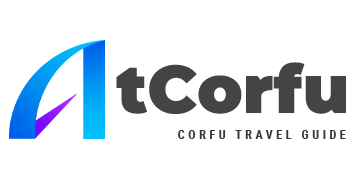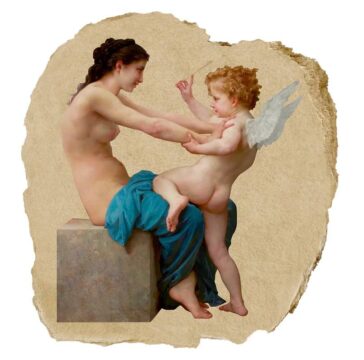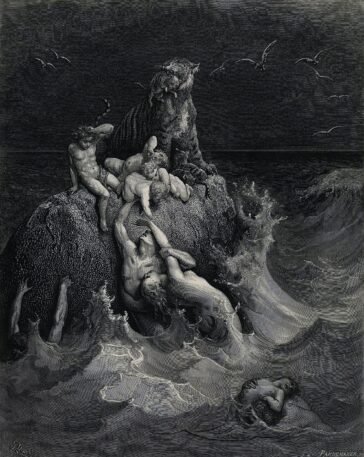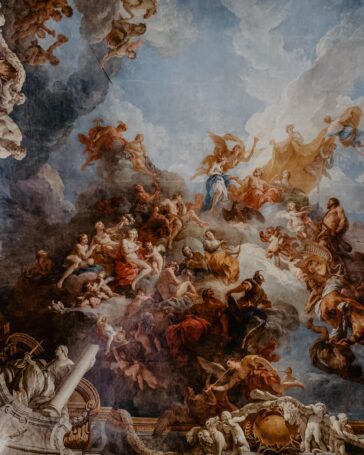Last updated on July 16th, 2025 at 03:05 am
Hey, did you know that Greek mythology is like the OG of European mythologies? It’s not just some random pile of stories about godly squabbles or historical facts.
Nah, it’s like peering into the very soul of humanity, a window into how people from the Bronze Age and even before that thought.
We’re talking way back, like 5,000 years ago, when folks were rocking togas and bronze armor.
But guess what? This ancient vibe isn’t just a history lesson.
Greek mythology is still here with us, hanging out in modern times. It’s got this crazy way of capturing the hopes and dreams of our inner selves.
That’s why it’s been a muse for art, painting, and the culture we’re all part of today. Like, as long as humanity is around, you can bet Greek mythology will be too.
In the year 5000, a whopping 3000 years from now, when people chat about olden times, you can bet they’ll be spinning tales of gods and goddesses mingling with monsters, strange humanoids, and all those wild creatures from Greek mythology.
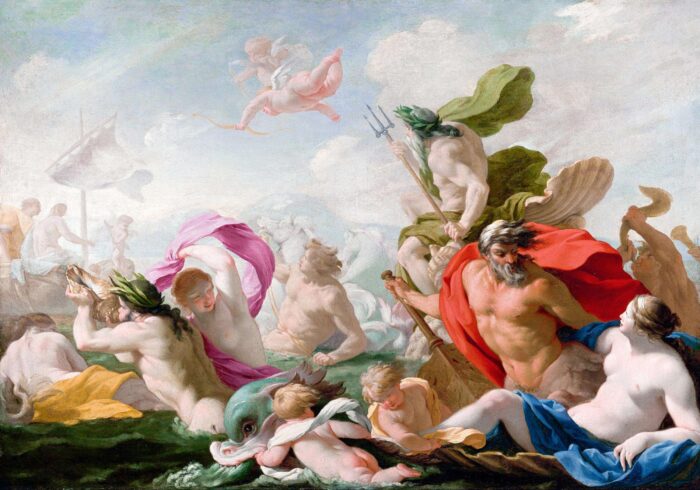
So, what’s the deal with Greek mythology, you ask? Well, it’s like this massive treasure chest of stories, beliefs, and rituals that the ancient Greeks held dear.
It wasn’t just some side hobby either – it played a serious role in shaping their society and culture.
And let me tell you, it’s like an epic universe in there. There’s a whole gang of gods and goddesses, heroes who could give any Marvel character a run for their money, plus a whole zoo of monsters and mythical creatures.
We’re talking about minotaurs, centaurs, and more crazy critters than you can imagine.
So, here’s the lowdown, the quick and dirty on some of the key players in Greek mythology:
Greek Gods and Goddesses
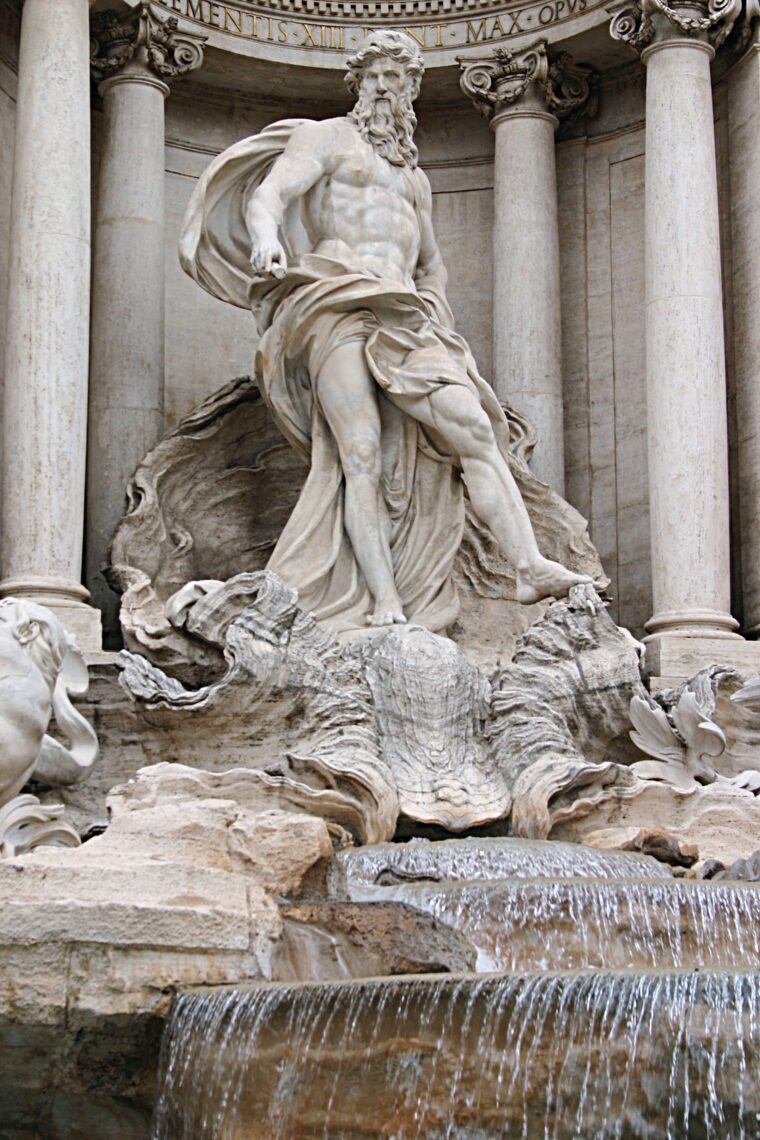
Oh, you’re in for a treat when it comes to those Greek gods! It’s like they’re a whole rollercoaster of emotions, flaws, and human-like messiness.
So, here’s the scoop: Greek Mythology isn’t your traditional run-of-the-mill religion. It’s like this epic saga where humans take the spotlight, and the gods are just these larger-than-life characters with all their quirks and weaknesses.
You’ve got a bunch of deities, each with their superpowers and personalities that could put a reality TV show to shame. And trust me, they’re a lively bunch.
It’s like a divine family reunion that goes from hilariously funny to super dramatic in a split second.
Alright, let’s meet a few of these heavy hitters from Greek mythology:
- Zeus: The king of the gods, Zeus was the god of the sky and thunder. He was known for his power, strength, and ability to control the weather. He was often depicted wielding a thunderbolt.
- Hera: The queen of the gods, Hera was the goddess of marriage and childbirth. She was the wife of Zeus and was often portrayed as a jealous and vengeful goddess.
- Poseidon: The god of the sea, Poseidon was known for his power over the oceans and his ability to cause earthquakes. He was often depicted carrying a trident.
- Demeter: The goddess of agriculture, Demeter was responsible for the growth of crops and the fertility of the earth. She was also associated with the cycle of life and death.
- Athena: The goddess of wisdom and warfare, Athena was a skilled warrior and strategist. She was also the patron goddess of Athens and was often depicted wearing a helmet and carrying a shield and spear.
- Apollo: The god of the sun, music, and prophecy, Apollo was known for his beauty and skill with a bow and arrow. He was also associated with healing and medicine.
- Artemis: The goddess of the hunt and wilderness, Artemis was known for her skill with a bow and arrow and her love of animals. She was also associated with childbirth and fertility.
- Ares: The god of war, Ares was a fierce and brutal warrior. He was often portrayed as violent and aggressive, but also courageous and skilled in battle.
- Aphrodite: The goddess of love and beauty, Aphrodite was known for her charm and allure. She was often depicted as a beautiful woman, sometimes with wings.
But wait, there’s more to the party! The ones I mentioned are just the tip of the godly iceberg in Greek mythology.
There’s a whole crew of gods and goddesses, each with their special flair and powers. It’s like a mythical buffet of personalities and talents. So, yeah, those I mentioned earlier are just the beginning of this divine cast of characters.
See more about the gods and goddesses of Greek mythology
Greek Heroes
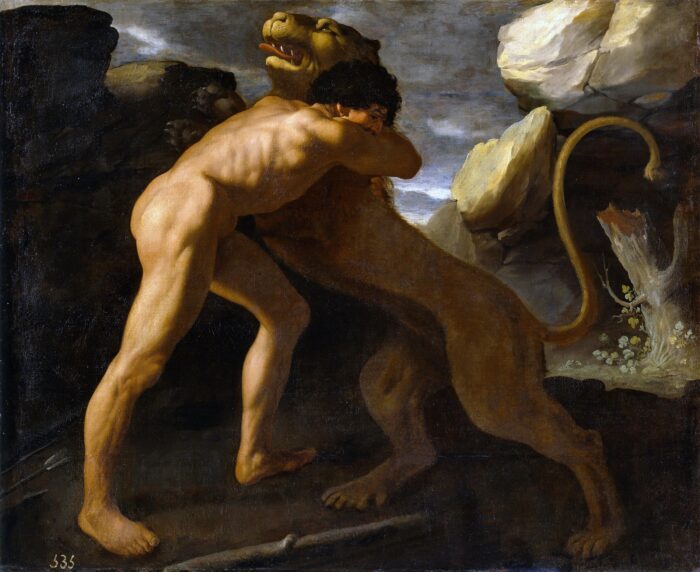
Hold on, because Greek mythology isn’t just about the big-shot gods and goddesses. Nope, we’ve got a league of legendary heroes who are like rock stars of the mortal world.
These folks weren’t your average Joes – they had this crazy mix of super skills and standout personalities that shook things up big time in Greek history and culture.
Get ready to meet some of the biggest names in hero history:
- Perseus: A son of Zeus, Perseus was known for his bravery and cunning. He is best known for slaying the Gorgon Medusa, whose gaze turned people to stone.
- Heracles (Hercules): The son of Zeus and the mortal woman Alcmene, Heracles was known for his incredible strength and bravery. He performed 12 labors, including slaying the Nemean lion, capturing the Erymanthian boar, and cleaning the Augean stables.
- Theseus: Theseus was a legendary hero and the founder-king of Athens. He is best known for slaying the Minotaur, a monstrous creature in Crete with the head of a bull and the body of a man.
- Jason: Jason was the leader of the Argonauts, a group of heroes who set out on a quest to find the Golden Fleece. He was known for his courage, leadership, and cunning.
- Odysseus: The protagonist of Homer’s epic poem, the Odyssey, Odysseus was a clever and resourceful hero known for his wit and cunning. He spent 10 years wandering the seas after the Trojan War, facing countless dangers and obstacles on his journey home.
- Bellerophon: Bellerophon was a Corinthian hero known for his ability to tame and ride the winged horse Pegasus. He is best known for slaying the Chimera, a monstrous creature with the head of a lion, the body of a goat, and the tail of a serpent.
- Atalanta: Atalanta was a skilled huntress and warrior known for her speed and agility. She was the only female member of the Argonauts and was said to have defeated many suitors in foot races and other contests.
But wait, there’s more hero goodness to explore!
Those I mentioned earlier are just the tip of the spear in Greek mythology. There’s a whole parade of heroes, each with their bag of tricks and epic feats.
It’s like a hero buffet where everyone brings their flavor to the table. So yeah, the ones I chatted about are just a sneak peek into this hero-packed saga.
Learn almost everything about Greek mythology heroes and their achievements.
The Monsters

Hold on, because Greek mythology isn’t all sunshine and rainbows.
Nope, we’ve got a whole menagerie of monsters and creatures that are like straight out of a fantasy nightmare. These critters had the ancient Greeks trembling in their sandals, and sometimes even giving a bit of respect.
Ready to dive into some of the most infamous monsters in this wild mythological world?
- Medusa: A Gorgon with snakes for hair, Medusa was known for her ability to turn people to stone with her gaze.
- Minotaur: A creature with the head of a bull and the body of a man, the Minotaur was said to dwell in a labyrinth on the island of Crete.
- Chimera: A fire-breathing creature with the head of a lion, the body of a goat, and the tail of a serpent.
- Cyclops: Giants with a single eye in the center of their foreheads, the Cyclops were skilled blacksmiths and were often depicted as brutal creatures.
- Hydra: A serpent-like creature with multiple heads, the Hydra was said to regenerate two heads for everyone that was cut off.
- Sirens: Creatures with the head of a woman and the body of a bird, the Sirens were known for their beautiful singing voices, which lured sailors to their deaths.
- Harpies: Creatures with the head of a woman and the body of a bird, the Harpies were known for stealing food and causing chaos.
- Scylla: A sea monster with multiple heads, Scylla was said to dwell in a rocky cave and prey on sailors.
But hey, the monster madness doesn’t stop there! The ones I just mentioned are just the tip of the claw in Greek mythology.
There’s a whole zoo of monsters and creatures, each with its own set of crazy powers and quirks. It’s like a mythical wildlife park where every beast brings its A-game.
So yeah, the ones I chatted about are just a little teaser into this monstrous realm of Greek mythology.
Here you can meet 6 mighty monsters of Greek mythology.
Greek Tales and Myths

Do you know what’s mind-blowing? Greek mythology is like this massive treasure trove of tales that covers everything from how the world started, to what the gods and goddesses were up to, and even the epic escapades of regular folks and heroes.
And let me tell you, the Hellenes, they’re no rookies when it comes to history and culture. They’ve been at it for ages, crafting and shaping things that have trickled down to what we’ve got today.
That’s why they call Hellas the birthplace of the whole Western civilization gig.
Now, let’s talk about the land itself. Greece isn’t just any old place, it’s a canvas painted by Mother Nature herself.
It’s got this wild side, with nature throwing her tantrums and the earth rumbling beneath your feet.
And the best part? This ongoing geological drama has created landscapes so unreal, it’s like you’ve stumbled into another dimension.
Plus, there are thousands of islands, each with its unique vibe. You won’t find anything like them anywhere else.
And you know what’s the crazy bit? All this diversity and beauty have this magical power to inspire some of the most fantastical stories ever told.
Greek mythology isn’t just about gods doing godly stuff. Nah, it’s a human affair, with a cast that includes gods, humans, heroes, semi-gods, and a whole parade of good and bad monsters.
So, let’s dive into some of the juiciest and most famous tales that this incredible world of Greek mythology has cooked up:
- Creation Myth: The creation myth describes how the world and the gods were created. According to the myth, the world began with Chaos, a formless void, and then the gods emerged from Chaos and created the world as we know it.
- Prometheus and the Theft of Fire: Prometheus was a Titan who stole fire from the gods and gave it to humans. As punishment, Zeus chained Prometheus to a rock and had an eagle peck out his liver every day, only for it to grow back overnight.
- The Trojan War: The Trojan War was a 10-year conflict between the Greeks and the Trojans, sparked by the abduction of Helen, the wife of the Greek king Menelaus, by the Trojan prince Paris.
- Demeter and Persephone: Demeter was the goddess of agriculture, and her daughter Persephone was abducted by Hades, the god of the underworld. Demeter searched for her daughter and, when she was eventually returned to her, she made the world barren in her grief.
- Orpheus and Eurydice: Orpheus was a musician who fell in love with Eurydice. When she died, he journeyed to the underworld to try to bring her back but failed when he looked back at her before they left the underworld.
- Theseus and the Minotaur: Theseus was a hero who slew the Minotaur, a monster with the head of a bull and the body of a man who was said to dwell in a labyrinth on the island of Crete.
- The Labours of Heracles: Heracles performed a series of twelve labors as penance for killing his wife and children when he got deliberately mad by the revengeful Hera. These labors included slaying the Nemean lion and capturing the Erymanthian boar.
The myths I just mentioned are like a tiny glimpse into the whole epic saga of Greek mythology.
It’s like a treasure chest overflowing with stories, each with its own set of characters that could rival a blockbuster cast, themes that hit you right in the feels, and life lessons that make you go, “Whoa, that’s deep.”
I mean, we’ve got tales of gods and mortals mixing it up, heroes battling beasts, and all sorts of jaw-dropping adventures.
It’s like a buffet of storytelling where every dish comes with a unique flavor.
So yeah, those myths I talked about earlier? They’re just a sneak peek into this mythological universe that’s bursting at the seams with creativity.
The Importance of Greek Mythology
Let me tell you, Greek mythology wasn’t just some bedtime stories for the ancient Greeks. It was like the ultimate guidebook to life, answering questions about why the sky cried rain or why the earth shook its grumpy fists in earthquakes.
But that’s not all – it’s like the spark that lit up their creativity, inspiring everything from epic paintings to the most gripping tales.
And here’s the kicker: Greek mythology isn’t just a little footnote in history. Nope, it’s like this grand pillar that holds up the whole Western culture skyscraper. It had a massive impact on so many things that make us who we are today.
We’re talking about literature that still makes our brains tingle, art that captures the imagination, philosophy that gets us pondering the big stuff, and so much more.
So, let’s unwrap the magic a bit and see why Greek mythology isn’t just a bunch of old stories, but a key player in shaping human knowledge and understanding:
- Literature: Greek mythology has been a rich source of inspiration for writers and artists throughout history. Many of the world’s greatest works of literature, such as Homer’s Iliad and Odyssey, were inspired by Greek mythology.
- Art: Greek mythology has also been a significant influence on art, both in ancient Greece and throughout the centuries. Greek myths and legends have been depicted in countless works of art, from the Parthenon sculptures to Michelangelo’s Sistine Chapel ceiling.
- Philosophy: Greek mythology played a crucial role in shaping the beliefs and values of the ancient Greeks, who sought to understand the world around them and their place in it. Many of the fundamental concepts of Western philosophy, such as the idea of justice and the nature of the human soul, have their roots in Greek mythology.
- Culture: Greek mythology has also had a significant impact on popular culture, from Hollywood movies to video games. Its enduring appeal speaks to its power to capture the imagination and inspire creativity.
- Greek mythology is the source of most myths borrowed later from monotheistic religions and adapted to different religions’ purposes. The myth of the flood of Deucalion was borrowed by the Jews to construct their tale of the flood of Noah. The God Sun also is the inspiration for the Jewish God.
Greek Mythology and Religions

You won’t believe the connections that Greek mythology has woven into the fabric of later religions. It’s like this grand source that monotheistic religions couldn’t resist borrowing from and shaping to their own needs.
Take the flood myth, for instance. Deucalion’s watery escapade inspired the Jews to spin their tale about Noah and his ark.
And hey, that God of the Sun in Greek mythology? Turns out it left quite an impression on the Jewish God.
But wait, it’s not just a one-time thing. If you look around the Eastern Mediterranean, India, Mesopotamia, Scandinavia, and Central America – you’ll find this whole bunch of gods who’ve been through the whole dramatic cycle of death, redemption, and resurrection.
And guess what? This drama was playing out ages before Jesus was even on the scene.
We’re talking about Osiris, Dionysos, Adonis, Odin of the Vikings, Ganesha, and Krishna in India, Leminkaiken, Tamuz, Quetzalcoatl of the Aztecs, Mithras – the list goes on.
These figures were all about the whole killed-and-resurrected gig, way before Jesus took the stage.
Here’s the kicker: that very same trick of resurrection you find in the monotheistic religions? It’s like a greatest hits album of what these preexisting mythologies were singing about.
So, when it comes to the beliefs of monotheistic religions, it’s like they’ve got a pretty elaborate recipe with ingredients borrowed straight from preexisting mythologies.
It’s like Greek mythology set the stage for this grand drama that’s still unfolding.
In conclusion
You know, when it comes to mythology, Greek mythology is like that extravagant treasure chest overflowing with tales and myths. It’s like the grand champion, no competition.
Those ancient Greeks were on a roll, leaving no stone unturned. Seriously, if you tried to gather all those tales into books, you’d need more than a lifetime to pull it off.
And here’s the kicker – there’s no natural thing in this world without a deity linked to it in Greek mythology.
Those ancient Greeks were like the ultimate storytellers, leaving absolutely nothing without a mythological backstory. It’s like every rock, every tree, even every raindrop had its tale.
But you know what’s the real charm? Greek mythology isn’t just an ancient relic gathering dust. Nope, it’s like this living, breathing tradition that’s woven its threads deep into Western culture.
It’s the wellspring that continues to captivate us even today.
And talk about a legacy! Greek mythology has left a trail of tales that are like eternal sparks.
You see, even science can’t resist the allure of these names. They’re scooped right from the mythological name pool to christen newly discovered planets and space objects. It’s like a cosmic homage to these ancient stories.
So, bottom line, Greek mythology isn’t just a bunch of dusty tales from the past. It’s a vibrant, essential part of Western culture that still enchants and inspires us.
Its stories, and characters, they’re like these timeless symbols that unravel the threads of human experience and delve into the mysteries of the universe itself. Talk about leaving a mark that spans the ages!
Read more on Mythology
Ancient Goddesses: Powerful Women in Greek Mythology
The presence of Goddesses and powerful women in Greek mythology is vast; in fact, it is not inferior to that of men, and in many instances, it surpasses it.
The Olympic Games in Ancient Greece
The Olympic Games in ancient Greece were a major sporting and cultural event that took place every four years in Olympia, a sanctuary dedicated to the god Zeus.
Revealing Most Important Figures of Greek Mythology
Greek mythology is a rich tapestry of divine beings and stories, with each generation of gods possessing its own unique qualities, roles, and rulers.
The Most Famous Tales in Greek Mythology
Greek mythology tales aren’t just a collection of stories; it’s a cosmic symphony that’s been playing for centuries, and its timeless themes and characters will keep us under its spell for eons to come.
Great Heroes in Greek Mythology and Their Labours
Ancient Greek heroes were individuals who were believed to possess extraordinary abilities or qualities, and who performed great feats.
The 12 Labours of Hercules in Greek Mythology
Herakles (Hercules), performed twelve Labors to prove himself worthy of immortality, facing many monsters, villains, and challenges.
Greek Theogony: The Victory of Gods against Titans
The Greek Theogony was an epic poem written by Hesiodos (Hesiod) quite rich in stories, with the family tree of Gods and the War against Titans.
The 12 Olympian Gods and Goddesses in Greek Mythology
The most important Greek gods are the 12 Olympian gods, called the Greek pantheon, and they are the most important figures in Greek mythology.
Meeting 6 Mighty Monsters of Greek Mythology
Today we will meet 6 of the most terrible monsters of Greek mythology that ever existed. Among them is the father of all, the mighty Typhon.
Beautiful Baby Names Inspired by Greek Mythology
One of the richest sources of unusual and one-of-a-kind names is Greek mythology. Here is a list with beautiful names to choose from for your baby.
Who are The Hellenes? The Real Name of the Greeks
Hellas is the land of Hellenes, that is, the land of the Greeks. But why do we call Greece Hellas, and who are the Hellenes?
Is Mythology The Distorted History Of The Greek Dark Ages?
In mythology and because of the absence of other more reliable sources, we have to look for historical truths and facts that are entangled in the myth

